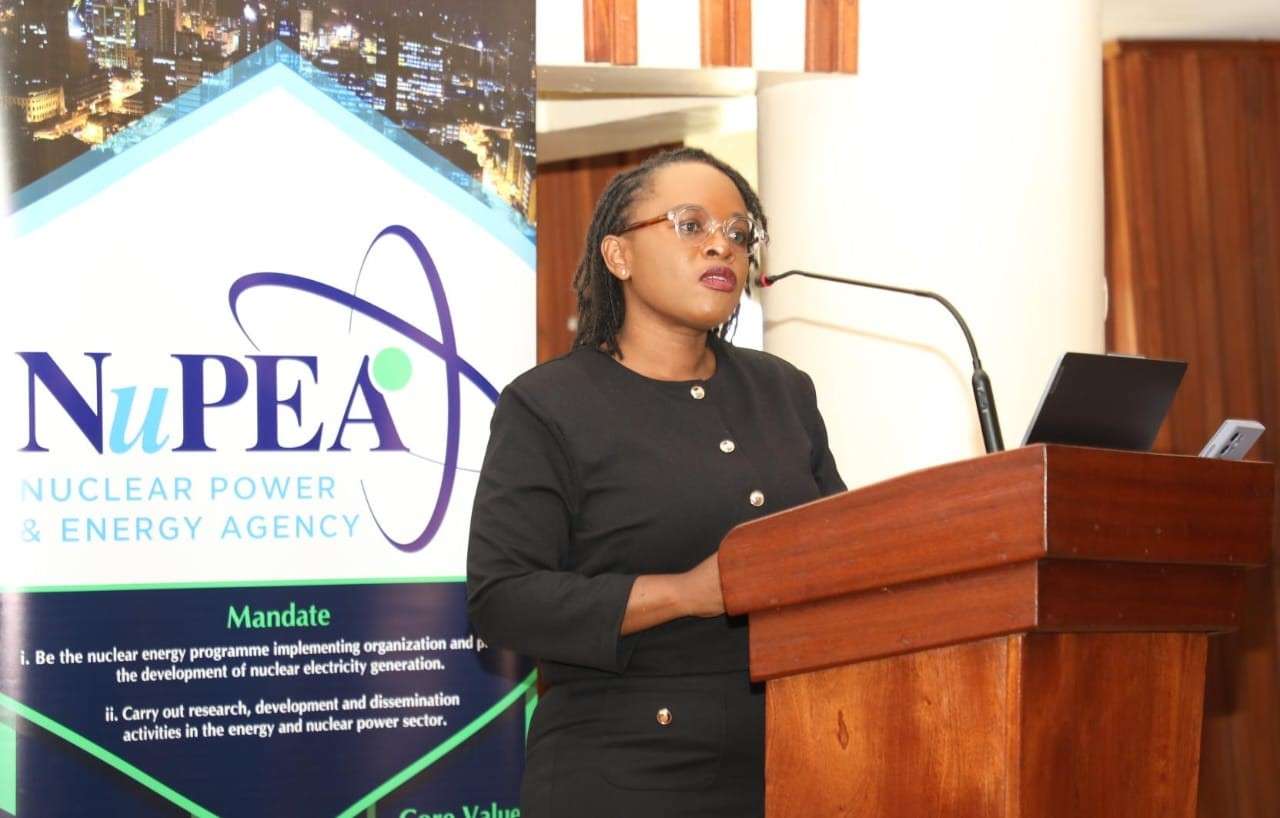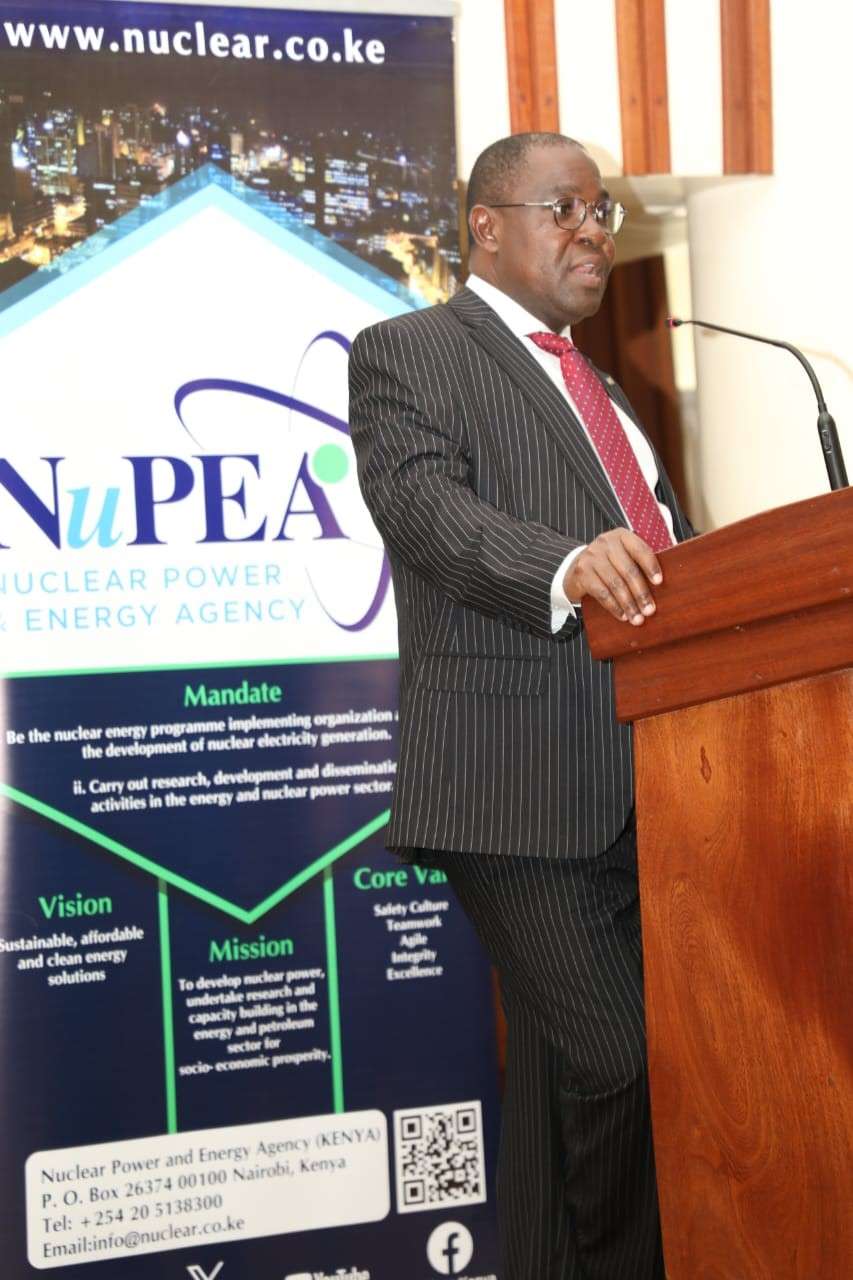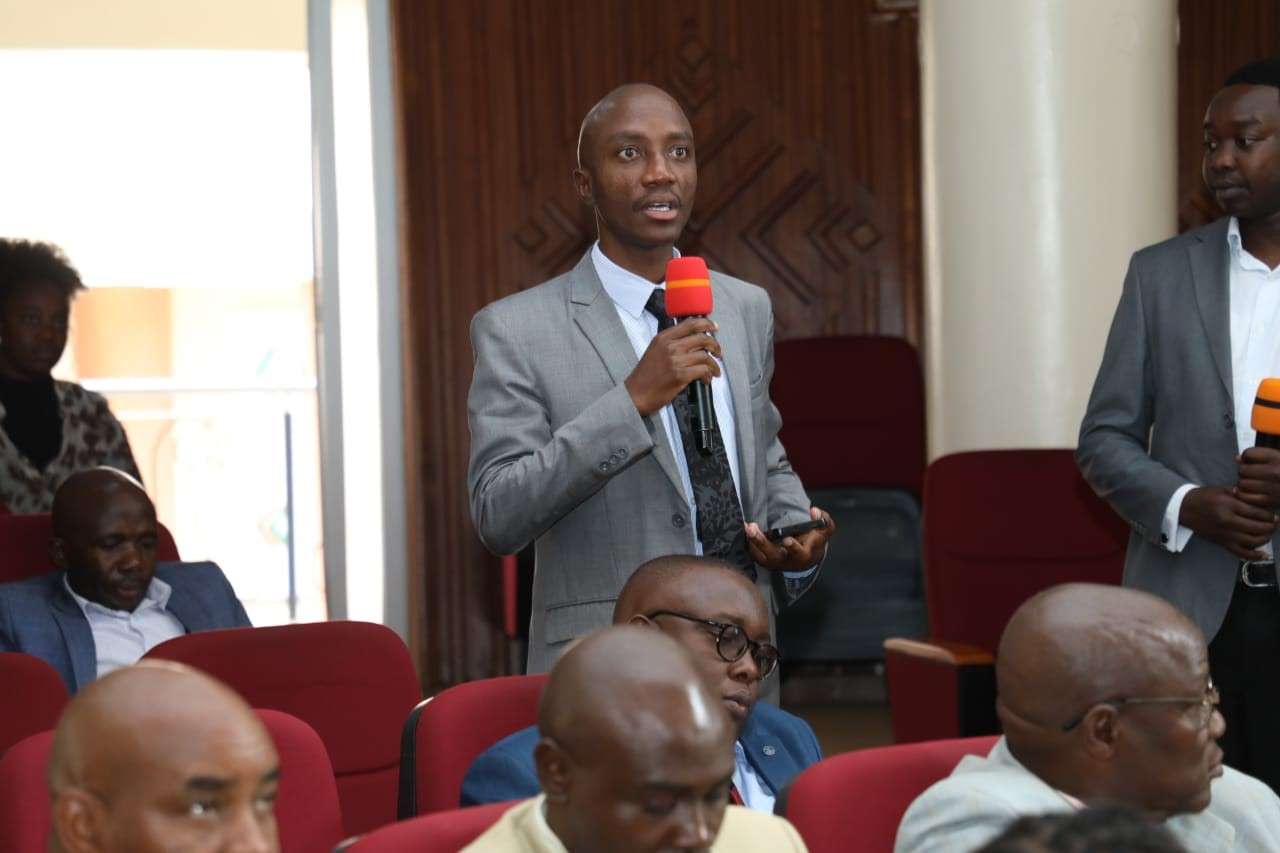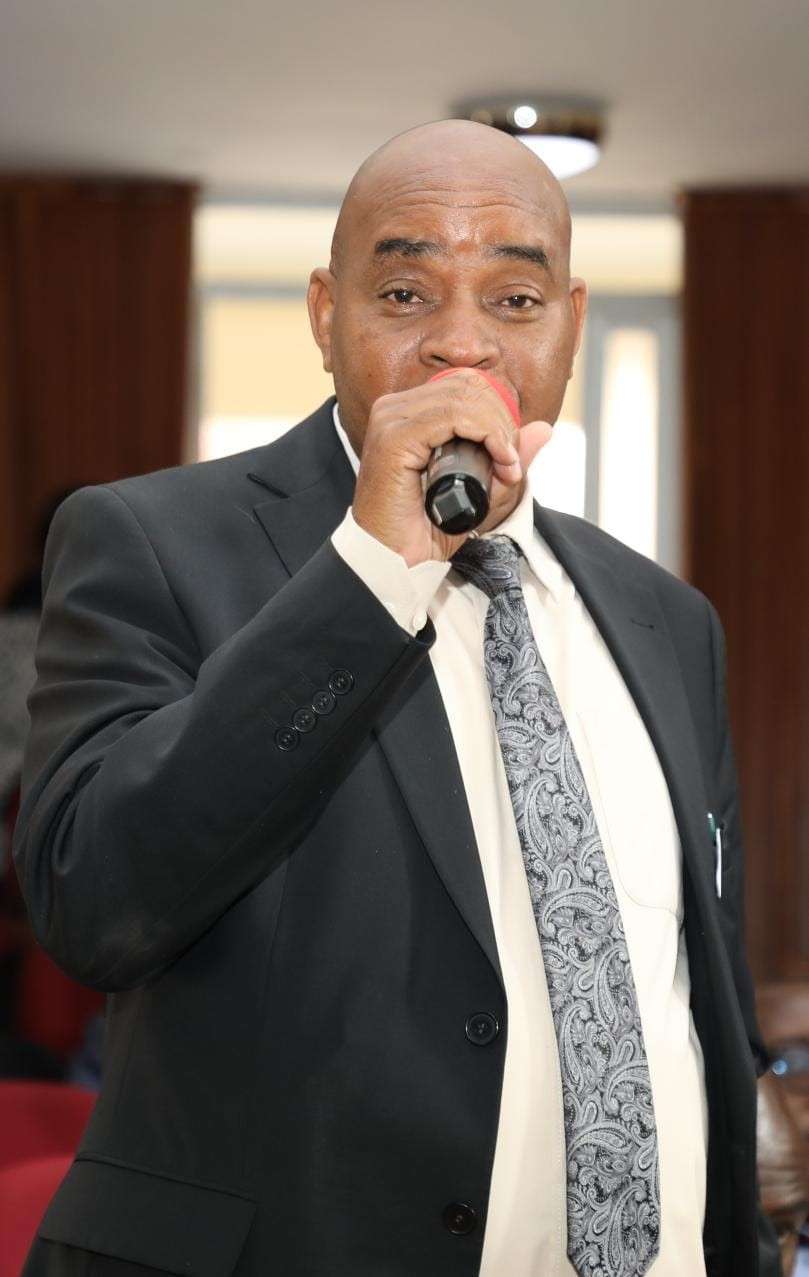
On February 26, 2025 Nuclear Power and Energy Agency (NuPEA) held a Stakeholder Validation Workshop on the Four Nuclear Safety Conventions at Kawi House Auditorium. The purpose of the workshop was to engage stakeholders in validating and discussing the integration of four key international nuclear safety conventions into Kenya’s national legal framework, as part of the country’s steps towards formal accession to these agreements.
The event was officially opened by CS Justus Wabuyabo, Chief Executive Officer of NuPEA, who highlighted Kenya’s strong commitment to upholding international nuclear safety standards as the country progresses with the nuclear power programme. He emphasized the importance of acceding to the four key nuclear safety conventions to align with global best practices, and underscored the critical role of the workshop in promoting dialogue, transparency, and stakeholder engagement in shaping Kenya’s nuclear legal and regulatory framework. He further reiterated NuPEA’s mandate, under the Energy Act, to develop a safe, secure, and sustainable nuclear energy programme, including establishing the necessary legal and policy infrastructure. The CEO also acknowledged the value of continued collaboration with the IAEA and national stakeholders in ensuring that nuclear safety remains a top national priority.
Industry leaders, regulatory authorities, and international experts from Kenya nuclear regulatory authority, National disaster management unit, Office of the attorney general, Office of the director of public prosecutions , Ministry of foreign and diaspora affairs, State department of energy, Kenya Bureau of Standards (KEBS), Nuclear society of Kenya, Eastern Africa radiation association for Radiation protection and KenGen convened to deliberate on the integration of the four nuclear safety conventions into national legislation, with the goal of aligning Kenya with international safety standards.
The objective of the Workshop was to facilitate national dialogue on Kenya’s planned accession to key international legal instruments under the auspices of the International Atomic Energy Agency (IAEA). These conventions form a critical part of the global nuclear safety framework, and the IAEA plays a central role in promoting adherence to and supporting the implementation of these instruments, thereby strengthening nuclear safety worldwide.
At its core, the workshop emphasized the importance of nuclear safety, whose fundamental objective is to protect people and the environment from the harmful effects of ionizing radiation. Nuclear safety encompasses ensuring proper operating conditions, the prevention of accidents, and the mitigation of their consequences should they occur.
By aligning with international safety standards through these conventions, Kenya is reinforcing its commitment to developing a safe, secure, and sustainable nuclear energy programme, with full transparency and stakeholder participation, guided by best practices and global legal instruments facilitated by the IAEA.

 Presentations were thereafter made by CS Serah Esendi Okumu, Director of Legal and Regulatory Services at NuPEA, and Ms. Judit Silye from the International Atomic Energy Agency (IAEA) Office of Legal Affairs, Nuclear Law Treaty Section. The presentations provided an in-depth analysis on nuclear safety obligations and the necessity of legal frameworks to guide Kenya’s nuclear energy development. They further discussed the four nuclear safety conventions necessary for the implementation of a successful nuclear power programme namely;
Presentations were thereafter made by CS Serah Esendi Okumu, Director of Legal and Regulatory Services at NuPEA, and Ms. Judit Silye from the International Atomic Energy Agency (IAEA) Office of Legal Affairs, Nuclear Law Treaty Section. The presentations provided an in-depth analysis on nuclear safety obligations and the necessity of legal frameworks to guide Kenya’s nuclear energy development. They further discussed the four nuclear safety conventions necessary for the implementation of a successful nuclear power programme namely;
- Convention on Nuclear Safety. This is the cornerstone of the international nuclear safety framework. A legally binding international treaty, that obligates Kenya to implement a comprehensive regime that maintains a high level of safety according to international benchmarks and ensures that all nuclear-related installations are operated in a safe, well-regulated and environmentally sound manner.
- The Convention on Early Notification of a Nuclear Accident. The Convention establishes a notification system for nuclear accidents from which a release of radioactive material occurs or is likely to occur and which has resulted or may result in an international transboundary release that could be of radiological safety significance for another State.
- Convention on Assistance in the Case of a Nuclear Accident or Radiological Emergency. It sets out an international framework for co-operation among States Parties and with the IAEA, to facilitate prompt assistance and support in the event of a nuclear accident or radiological emergencies, to minimize its consequences and to protect life, property and the environment from the effects of radioactive releases.0
- The Joint Convention on the Safety of Spent Fuel Management and on the Safety of Radioactive Waste Management. A legally binding international treaty that represents a commitment by States to achieve and maintain a high level of safety in spent fuel and radioactive waste management, through the enhancement of national measures and international co-operation. The convention ensures that during all stages of spent fuel and radioactive waste management there are effective defenses against potential hazards so that individuals, society and the environment are protected from harmful effects of ionizing radiation, now and in the future.
The workshop created an interactive platform for stakeholders to engage with NuPEA and IAEA representatives, allowing them to raise pertinent questions and gain practical insights into the real world implications of these nuclear conventions.

 NuPEA’s Role in Advancing Nuclear Energy Safety
NuPEA’s Role in Advancing Nuclear Energy Safety
As the nuclear power implementing organization, Section 56 of the Energy Act 2019, stipulates NuPEA’s role in enhancing the legal framework for Kenya on Nuclear Safety by; Proposing policies and legislation necessary that support nuclear power development and ensure safety compliance; and in collaboration with the relevant Government agencies, develop a comprehensive legal and regulatory framework.
The stakeholder workshop provided a crucial foundation for these efforts, fostering collaboration between NuPEA, international partners, and national regulatory bodies. The insights gained will shape future policy decisions and guide Kenya’s progress in nuclear safety governance.
Next Steps: Towards Accession and Domestication
Following the workshop, NuPEA and its stakeholders outlined the next steps toward Kenya’s formal accession to the four nuclear safety conventions. This will include strategic engagement with key ministries and parliamentarians to support the domestication of the conventions into national legislation.
The success of the Stakeholder Validation Workshop represents just one of the several steps NuPEA will take in ensuring that Kenya’s trajectory towards nuclear energy is characterized by the highest standards of nuclear safety and a transparent legislative framework. With ongoing collaboration and compliance efforts, the country is well-positioned to develop a secure, transparent, and forward-looking nuclear power programme that benefits future generations.
